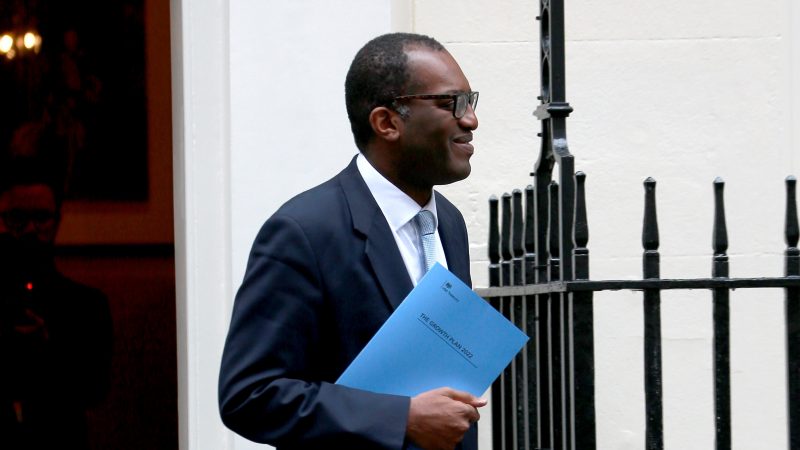
Analysis has found that the richest households will gain around 40 times as much as the poorest from the ‘mini-Budget’ despite the government U-turning on its plans to abolish the 45% income tax rate for earnings over £150,000.
Research by the Resolution Foundation, published after Kwasi Kwarteng confirmed this morning that the government is abandoning its decision to scrap the top rate of income tax, reported that the richest 5% of households in the UK still stand to gain an average of £3,500 next year due to his fiscal statement earlier this month.
The government had been accused of waging “class war” following the mini-Budget. Following widespread criticism, Kwarteng released a statement today saying that the proposal had become a “distraction from our overriding mission to tackle the challenges facing our country”, adding: “We get it, and we have listened.”
While the Resolution Foundation found that the U-turn will remove 62% of the cash gains of the richest 5% of households and 54% of the richest 10%, the poorest fifth of households will gain just £90 next year from the mini-Budget.
The think tank reported that a quarter of the gains from the remaining tax cuts will go to the richest 5% of households while just 16% will be spread across the entire bottom half of the income distribution.
According to its analysis, the remaining £43bn of unfunded tax cuts “still leave the Chancellor on course to miss his fiscal target of having debt falling in the medium term” and that Kwarteng will still have to make “significant spending cuts” when he delivers his next planned statement on November 23rd.
Resolution Foundation researcher Lalitha Try welcomed the U-turn but argued that “the top are still the main winners” of the government’s tax-cutting agenda and that “the scale of spending cuts required to pay for them is largely unaffected”.
In an interview with the BBC on Sunday, Liz Truss repeatedly refused to rule out cutting public spending. The Chancellor told BBC Radio 4 today that it is “really important” that the government stay within the spending allocations set out in 2021.
Labour’s Rachel Reeves said earlier today that the mini-Budget showed that the government’s “instincts” were to cut taxes for the wealthiest “paid for by borrowing which, in the end, current and future taxpayers will have to pay for”.
“It was obvious they weren’t going to get this through the House of Commons. They were forced into this screeching U-turn. But so much damage has already been done, with higher government borrowing costs and huge worries for people about how they’re going to afford their mortgages,” she added.
“The idea that the government can afford to give tax cuts to the wealthiest but not uprate benefits in line with inflation, I think, is grotesque. And there are many people who are saying that the government need to rethink this one as well.”
Previous comments by Truss have provoked fears that the Prime Minister will announce significant plans to cut back the benefits bill. She has previously said that Universal Credit should be scrapped because of the “huge expense” to taxpayers of “recycling” their money through the system.
The Prime Minister said on Friday: “The biggest part of the package that we announced [in the mini-Budget] was the support for families on energy as well as making sure that we reversed the national insurance rise.
“In terms of benefits uprating, that is something the Work and Pensions Secretary is looking at and she will make an announcement in due course as is the normal practice, for the autumn.”
The Joseph Rowntree Foundation (JRF) has urged the government not to renege on its promise, made earlier this year, to raise Universal Credit and other working age benefits in line with inflation, arguing that the move would be a devastating blow to millions of households and a “harmful act of historic proportion”.




More from LabourList
Which ministers have done the most and fewest broadcast rounds in year one?
‘Welfare reforms still mean a climate of fear. Changes are too little, too late’
Welfare bill: Which MPs are still voting against reforms?